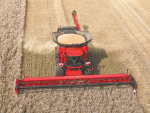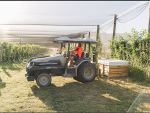Purchasing rights within Fonterra will from now be easier thanks to TAF. Without knowing it, the acceptance of TAF has also enhanced the role of markets within the cooperative to allocate all things, including those things we traditionally placed non-market values on. But importantly, we didn’t arrive at this state through a deliberate choice. To unify the cooperative, we must now look at how we arrived here and whether this is in our long-term best interests.
To investigate how this happened, consider this: should votes within Fonterra be subject to market share – tradeable and therefore viewed as private property, or instead seen as a civic responsibility to the cooperative, and therefore an obligation of membership?
This is actually a question about the appropriateness of markets without limits within the cooperative. But why should we worry that we are moving towards a cooperative in which everything is up for sale? For two reasons: one is about inequality, the other is about corruption.
Consider inequality: larger farmers who have more money invested in the cooperative should have a greater say because they have more to lose. This sounds like a strong market-based argument, but implicit in this comment is that smaller farmers are less able to make appropriate decisions for the good of the cooperative because supply size is the best measure of democratic competency. Of course, rational thought says this argument is flawed, but for the last 10 years, this argument has prevailed largely unchallenged. For ten years, those with more means have mattered more.
The second reason – corruption – is about the corrosive nature of markets. Markets change the way we view the things being exchanged. When we decide certain things should be tradable, we decide, at least implicitly, it is appropriate to treat them as commodities, as instruments of profits and use. This means if you have the ability to influence the outcome of a vote, you would be more inclined to vote towards an outcome that is to your personal advantage. Conversely, if you had no more ability to influence the result than any other member, you would be more inclined to vote towards the collective good, believing everyone else would do the same.
Markets should have limits within the cooperative. Markets promote inequality and corrupt the non-market value of the things they allocate. They change member attitudes towards the value of the cooperative, towards other members and towards working together for the collective good.
Encouraging markets into all areas of our cooperative will not promote unity.
A 66% majority in a market-based vote might be the easy way to claim unity, but we all know that to truly have cohesion within the cooperative requires brave leadership – leaders who can step back from heady market values and rediscover the truly priceless non-market values that can unite us and drive dairying sustainably into the future.
• Caroline Gilbert is a Taranaki dairy farmer and Fonterra supplier








